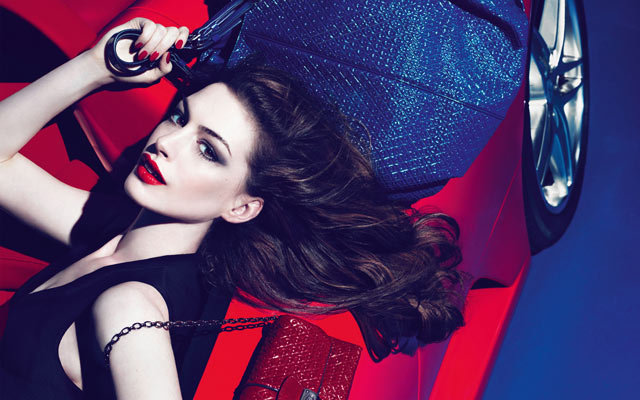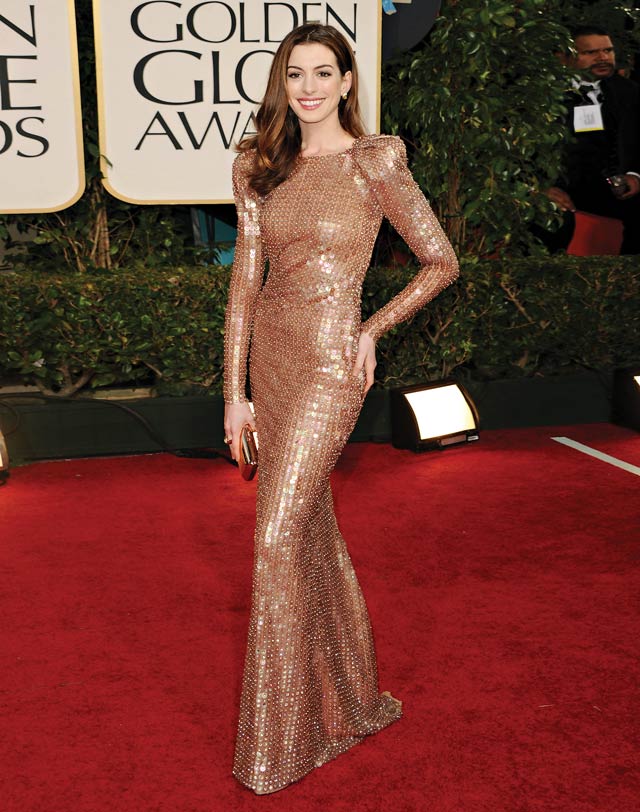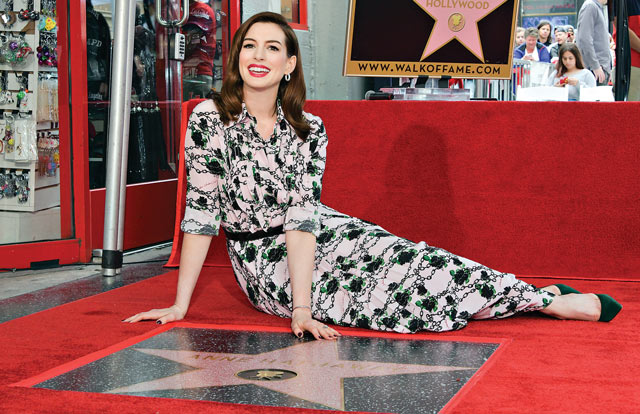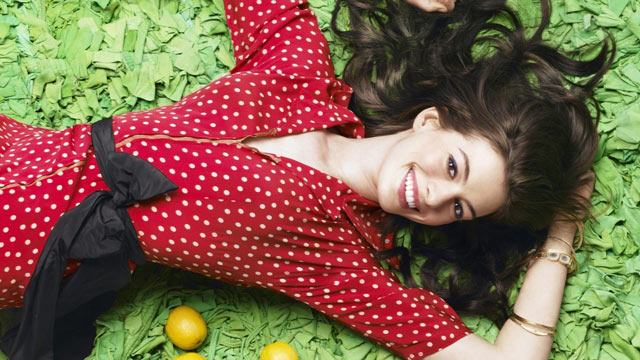
Anne Hathaway has come a long way since her screen breakthrough in the 2001 film, The Princess Diaries. Now 37, she has largely fulfilled the extraordinary promise she demonstrated as a teenage star by going on to earn an Oscar (for Les Miserables), and appearing in many memorable films ranging from The Devil Wears Prada to Rachel Getting Married to Interstellar.
Her new film, Dark Waters, sees her co-star opposite Mark Ruffalo in a thriller based on the real-life story of the 20 year legal battle against the Du Pont chemical company for dumping toxic waste – used in the production of teflon frying pans until 2013 – in West Virginia. Hathaway plays the wife of Ruffalo’s dogged lawyer Robert Bilott who, in 2017, ultimately prevailed on behalf of 3,500 residents by earning a $671 million settlement from Du Pont and its Chemours subsidiary.
For years, many scientists have argued that Teflon-coated products contain a toxic chemical that is potentially carcinogenic or otherwise dangerous to human health. One of the reasons that led Hathaway to want to be part of Dark Waters was how she herself had read the 2016 New York Times article that documented Bilott’s crusade against DuPont and the contamination resulting from the manufacture of Teflon-coated products.
“I opened the drawer where I keep my pans and pots, and there was a non-stick pan,” Hathaway says. “And despite reading the article when I was pregnant with my first child that said ‘don’t use non-stick,’ there was one that had somehow slipped through the cracks and I’d been feeding my family with it for years. I try not to blame myself too hard in those circumstances, but people should never be put in that position where…we’re inadvertently poisoning ourselves and the people we love.”
Apart from her professional achievements, Hathaway believes that her most significant triumph has been a more deeply personal one. She has spent much of her adult life struggling to overcome doubts, insecurities and a people-pleaser mentality. Today, having endured years of online trolls and media attacks which have criticised her as being too anxious to be liked, Hathaway now owns her fearless, unfiltered spirit and no longer needs external validation of her identity.
Declared Hathaway: “I spent way too much time trying to be perfect and then going through periods of anxiety and confusion that would leave me exhausted. Now I take things as they come and I don’t block myself. I guess it’s all about gaining more perspective and being able to enjoy things rather than constantly worrying all the time…I’m very happy with how my life is evolving. I’ve figured out that I don’t have to stress myself as much and can just enjoy everything more by being true to who I am.”
Anne Hathaway grew up in Brooklyn, New York in an intellectually and artistically rich home. Her father is a prominent lawyer and her mother was formerly a theater actress who imbued her with a dual passion for the arts and social justice.
She lives most of the year in an uptown penthouse flat in New York with her actor husband Adam Shulman and their three-year-old son, Jonathan, aka Johnny. In December, she gave birth to the couple’s second child, whose name and sex remain undisclosed.
Apart from Dark Waters, Hathaway is also starring in two episodes of Modern Love, the highly anticipated Amazon Prime Video limited TV series in which she plays a bipolar lawyer. Dev Patel and Tina Fey also appear in the show.

What led you to play in Dark Waters? It’s been a long time since we’ve seen you in a film where you’re not the protagonist – which in this case is Mark Ruffalo as the lawyer fighting against DuPont?
ANNE HATHAWAY: It was a talk with Todd (Haynes, the director) that made me want to play this part. When I first got it on the page (the screenplay), there’s this cliché about the central male character and his wife and I thought this film was one of those situations.
But then Todd told me about Sarah and who she is and I was pretty humbled actually and brought down to earth about my own assumptions about what a midwestern housewife was like.
How would you describe your character?
AH: Sarah is vivacious, powerful, and full of contradictions. You can’t tell everything about her just by any one aspect. So I really had to meet her and get to know her and although I’m not sure I figured out all of what she’s about I think I had enough to give people a good glimpse of her…
She was also a big part of Rob’s life and he relied on her incredible strength in order to be able to take on a giant corporation for that length of time.
How did you find working with Mark Ruffalo?
AH: Mark brings a lot of things we’ve come to expect from him – stunning acting, intelligence, dignity, and so much integrity to his work…He gives such a beautiful, understated performance. There’s something very risky about what he’s doing in terms of playing the character in such an understated way for the length of the film. I find him incredibly captivating in this role and this story he’s telling is such a gift to us because the man he’s playing is someone who has made the world a safer place and he carried it on his back for so long.
Dark Waters draws our attention to environmental contamination. How did it feel to be part of a film that is addressing issues that are now of such huge concern to the general public and society as a whole?
AH: There wasn’t really any acting required, in terms of playing someone who was learning of (corruption) and was equal parts aghast and terrified and angry and emotional…It’s heartbreaking and infuriating on a human level.
“I grew up very fast and was very competitive and determined to succeed in this business.”
How do you feel about environmental activists and crusaders like Greta Thunberg who are warning the world about global warming?
AH: I’m so inspired by them – their priorities are exactly right. They are focused and doing all the things we tell young people to do. So I don’t understand people’s negative reaction to this generation, except to say they must be very comfortable with the greed innate in the status quo.
Do you think that being part of a film like Dark Waters bolsters your own activist spirit?
AH: The climate, the fight against racism, women’s rights – these are all issues that should concern us. My parents taught me basic values to hold onto and my upbringing brought me into contact with people of different ethnicities and cultures. I was also encouraged to speak up whenever we witnessed injustice and I like to think that I have the same kind of instincts when it comes to exposing inequality and fighting for basic human rights.

You’re someone who is known for being very passionate about everything you do, sometimes to a fault. But in recent years you’ve spoken out about changing your perspective on how you present yourself and also about not pouring too much of yourself into your film career?
AH: I still think that you can work hard as long as you make time for your own needs and maintain the kinds of friendships that make life interesting and enjoyable. You can’t just exist for your work or you lose your sense of who you are. I’ve been through a lot and I’ve learned to take care of myself better and rethink a lot of things. I have a much richer and happier life now.
In one sense, I grew up very fast and was very competitive and determined to succeed in this business. But when you push yourself that way you also keep yourself from evolving in other ways on a personal level. So you learn to stop being so driven and become more aware of yourself and your own needs that have nothing to do with your career.
What’s the biggest change you’ve noticed about yourself over the years?
AH: I’ve gone through an evolution and things feel much easier and freer now. I don’t work on things as much as simply enjoying them. Now I feel like I can be more forgiving of myself and not be as self-critical or self-conscious.
I just figured out how to say thank you to life by taking care of myself. By not apologizing for taking up space, which is not something I knew how to do 10 years ago…So I try not to be too hard on myself…It’s been a journey. I don’t look that different, but I just feel like the inside has transformed so much.
“I’ve been through a lot and I’ve learned to take care of myself better and rethink a lot of things.”
You’re also appearing in the new Amazon TV series, Modern Love, in which you play a woman suffering from bipolar disorder. Was it a challenge to take on a character like that?
AH: I don’t like actors who complain and go on about how exhausting their parts were. We are the luckiest people in the world, and if you are a working actor, that’s your job and be grateful. There are a lot of people who want your problems….I always say that actors’ vanity doesn’t concern me and that this profession is not as hard as some want us to believe. We’re lucky and that’s it.
But I have to be very candid and admit that this time, playing a woman suffering from bipolar disorder was a challenge. There were many moments when I felt like: “I’m never going to be able to do it.” It was tough – so here I am complaining just after I’ve said actors shouldn’t complain!
 What in particular caused you the most difficulty in playing Lexi, a bipolar lawyer?
What in particular caused you the most difficulty in playing Lexi, a bipolar lawyer?
AH: I wasn’t fully prepared for what it was going to take to represent the highs of the high and the lows of the low and then have to go back to the highs and go back to the lows, sometimes multiple times a day.
I really lost my equilibrium by the end and kind of just needed to go to bed and get myself in order. It made me appreciate that I am an actor and I’m not diagnosed with this condition.
But I’m an actress, so in that sense I have to be an instrument for what my character is experiencing. So that means that I have to accept the challenge and be able to give voice to those affected by this condition in the most respectful way possible.
In your own life, was there any one thing that caused you the most distress?
AH: It was misdirected energy and emotion…Self-loathing really serves no one. That kind of self-focus, you think it’s only affecting you but your energy can be beaming out and hitting someone halfway across the world in ways that you couldn’t have imagined. Even when you’re self-focused you are affecting people in the world around you. So I try not to be too hard on myself.
INTERVIEW: WENN
PHOTOGRAPHS: GETTY![]()










































